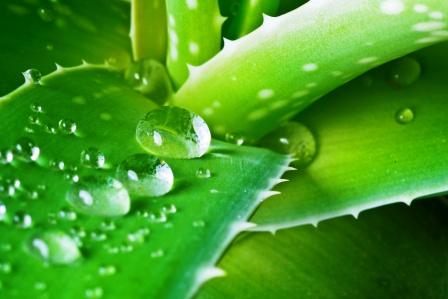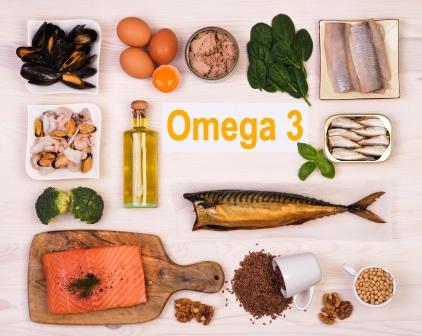Gastro Intestinal Bleeding: Prevention and Home Remedies
Article by Dr Raghuram Y.S. MD (Ay) & Dr Manasa, B.A.M.S
Gastrointestinal Bleeding is a dangerous condition, immaterial of it being in upward or downward direction. Since it is a symptom or complication of some other disease, it becomes important to address the primary disease causing the bleeding many times.
Read related: Gastro intestinal Bleeding Causes, Symptoms, Differential Diagnosis
Table of Contents
Preventive measures
Preventive measures of GI Bleeding
Prevent or effectively treat the related condition (primary disease causing the bleeding)
Eat a healthy and balanced diet
Have regular and light exercise
Avoid alcohol and tobacco
Drink plenty of water
Review your aspirin regiment with your doctor before starting treatment
Prevent hemorrhoids, Have regular and timely bowel movements, never withhold the urge to defecate forcibly and resist the urge to strain while having a bowel movement. Consume fiber and laxatives as and when needed.
Have polyps evaluated regularly and as soon as possible. They can be a pre-cursor for colorectal cancer
After food, remain upright for at least an hour (do not sleep immediately after food) to avoid acid reflux
If you notice any signs of GI Bleeding, seek medical care immediately
Identify Shock and seek immediate medical intervention – Shock manifests with warning signs like feeling of freezing cold and uncontrollable shivers (shaking of body). In this condition you may need intravenous fluids. Therefore immediately call a doctor or report at a nearby hospital.
Identify and report warning signs of intestinal rupture or perforation – Fever, very rigid abdomen or tummy, severe shiver and constipation suggest intestinal rupture or perforation, this condition demands surgery (immediate). When you find these symptoms seek emergency medical attention without wasting time.
Home Remedies
Home Remedies for GI Bleeding
Gastro Intestinal Bleeding is a dangerous condition. Without being properly diagnosed and without the guidance of a qualified physician, it is unwise to try any home remedies because many remedies (home) are not proved to be effective in all cases of bleeding. If the bleeding is severe and if it is associated with a chronic illness, home remedies might just prove to be like ‘rubbing salt on wound scenario’, worsening the condition. I suggest an immediate appointment with doctor in case of GI Bleeding, especially if it happens repeatedly. You may try home remedies when symptoms of intestinal rupture and or shock are absent or when there are no complications associated with GI Bleeding. Anyhow it is good to try things by taking your doctors consent.
Below mentioned are some of the home remedies for GI Bleeding
Avoid these – Avoid foods that trigger gastric secretions like spicy and salty foods. Avoid alcohol and smoking, they increase gastric secretions and worsen bleeding
High fiber diet – Eat a high fiber diet. This increases the bulk of the stools. This prevents diverticulosis and hemorrhoids which are chief causes of GI Bleeding.
Water – Take good quantity of water because you are losing lot of fluids and electrolytes while experiencing GI Bleeding. If bleeding is moderate to severe, drink fluids continuously and repeatedly until bleeding stops. This avoids dehydration and electrolyte imbalance.
Juices – Drinks having Vitamin C with minerals and B vitamins, diluted apple or pear juice help in restoring fluid in the body and replenish the system
Olive leaf extract and wild oregano oil – Olive leaf extract or wild oregano oil are natural antibiotics / antimicrobials which can be used in GI Bleeding to eradicate and eliminate microorganisms. These may be used with high doses of probiotics.
Probiotics – Probiotics will help in replacing healthy bacteria in your gut and enhance gut health and immunity. They improve digestion and prevent recurrence of infection with microorganisms.

Aloe vera juice – This juice hastens the healing process in intestinal bleeding, reduces inflammation, heals ulcers and wounds and destroys virus. Pure and fresh juice not having additives or preservatives should be used. One forth cup shall be taken once or twice a day on empty stomach.
Coenzyme Q10 – It is a powerful antioxidant. It reduces free radical damage and promotes tissue repair. It should be recommended in a dose of 30-60 mg per day. It shall be taken with oil containing omega-3 essential fatty acids.

Omega 3s – Omega-3 essential fatty acid containing fish oil supplements, hemp seed oil and cold-pressed flax seed oil have strong anti-inflammatory properties and are useful in healing inflammatory bowel diseases. At least 1 tablespoon of EFAs should be taken in either oil or flax oil form every day.
N-Acetyl Glucosamine (NAG) – It is an amino sugar which is normally formed in our bodies from glucose. It is helpful in healing intestinal mucosa. It can be taken in a dose of 6-10, 500 mg capsules per day.
Licorice, Slippery elm, Marshmallow root – are good for GI bleeding either taken individually or as ingredients in some compounds
Retention enema – Retention enema consisting of comfrey root powder, marshmallow root powder and slippery elm (inner bark) powder mixed in 1-2 cups of filtered or spring water helps in controlling bleeding from colon very quickly.
Get rid of your constipation – If constipation is a cause of your bleeding, take enough fiber diet and drink good quantities of water to get rid of constipation. High fiber foods include green vegetables, beans, squash, prunes, figs etc. Warm bone broths and hot herbal teas also work great. Avoid taking refined flour, pasteurized dairy products, alcohol and fried foods. Probiotics and more fermented foods also relieve constipation. Exercise (jumping on mini-trampoline etc) helps to stimulate bowels and lymphatic system. Light exercise can also support bowel function. This includes stretching, walking, jogging, yoga, swimming and dancing.
Take care of hemorrhoids – Avoid constipation and diet recommended for constipation (above), keep away from alcohol and spicy foods, do not forcibly control the urge to defecate and do not sit long on the toilet doing things. Clean your anal opening thoroughly after defecation. Do not cleanse roughly or use soaps that contain harsh chemicals, alcohol or perfumes. Use plain water to wipe yourself and then dry your bottom later. Practice Sitz bath for at least 10 minutes, twice daily for 10-15 minutes (each sitting). Try herbal creams which soothe and heal hemorrhoids. Cream consisting of turmeric and tea tree oil is useful.
Heal and improve your Ulcerative Colitis – Avoid foods which trigger UC, like dairy products, spicy foods and refined sugars. Take foods rich in omega 3 fatty acids and probiotics. These foods reduce inflammation and enable absorption of nutrients. Relax and rest. This will enable good digestion. Calming activities like deep breathing and stretching will help to improve circulation and regulate digestion.
Try stool softeners – Hard stools cause rectal bleeding. They also cause hemorrhoids and cause straining on the toilet, anal fissure etc which can cause rectal bleeding. You can use one or more of the below mentioned natural laxatives which also ensure that your stools are not hard. They also enable to make your stools soft and smooth.
- Water
- Aloe vera / Aloe vera juice
- Flaxseed / flaxseed oil
- Coconut water
- Leafy vegetables like kale, mustard greens, spinach etc
- High fiber fruits like figs, apples, pears and berries
- Psyllium husk
- Prune juice and other prune products
- Chia seeds
- Probiotic rich foods like coconut kefir, kombucha, sauerkraut, kimchi etc
Reduce your stress levels – It will help in promoting healing and decrease inflammation.
Talk to your doctor if you are using any of these in excess – aspirin, NSAID’s, they can cause peptic ulcers or worsen ulcers leading to bleeding
Home remedies for bleeding gastric ulcers
Home remedies if Gastric (Peptic ulcers) are cause of bleeding –
- Flavonoids – Foods and drinks rich in flavonoids should be used. They include apples, soybeans, red grapes, berries, broccoli, legumes, kale, green tea etc. They are gastro-protective, fight against H. pylori bacteria, and heal ulcers.
- Licorice – Licorice (deglycyrrhizinated) heals ulcers and inhibits the growth of H. pylori bacteria. It is available as a supplement.
- Probiotics – They are living bacteria and yeast which provide healthy and important microorganisms to your digestive tracts. They are present in many common foods, mainly in fermented foods. The foods having probiotics include buttermilk, yoghurt, miso, kimchi, kefir etc. Probiotics are also available as supplements.
- Honey – They contain many useful elements including polyphenols and other antioxidants. It is a powerful antibacterial agent and inhibits the growth of H. pylori bacteria. It soothes your ulcers.
- Garlic – It inhibits H. pylori growth. It can be taken directly or in the form of garlic supplements.
- Cranberry – Cranberry and its juice help fighting H. pylori infections. It is also available in the form of supplements.
- Mastic – It is a sap of a tree grown in Mediterranean. Chewing its gum has shown to help fight H. pylori. The gum can be chewed or its supplement be taken.
- Bananas – Have bananas. They have antacid effect. They also help heal ulcers. Banana milk shake is also beneficial.
- Combined vegetable juices (of carrot, cucumber, beetroot, spinach, cabbage etc) is good for curing ulcers
- Cabbage – It is one of the natural remedies for gastric ulcers. Boil about 500 grams of cabbage in one liter of water till the amount of water reduces to half. Cool it and strain the solution. Consume this 2 times per day. Take this remedy for 2 weeks. Carrot juice can be added to make it tastier.
- Wood apple – Soak about 15 grams of wood apple leaves overnight in approximately 250 ml of water. Strain and consume it first thing in the morning. Continue taking this remedy for few weeks.
- Drumstick leaves – grind about 10-15 grams of drumstick leaves. Add it to half cup of yoghurt and consume this on regular basis.
- Fenugreek tea – is one of the natural remedies for healing gastric ulcers. Herbs like cinnamon, chamomile, calendula, licorice, slippery elm etc are also useful and can be consumed in the form of tea.
- Aloe vera juice – should be consumed before meals.
- Almond milk – prepared by blending about 5 blanched almonds should be taken regularly.
- Yoga and aromatherapy will help in ulcer healing
- Butter, cream, raw goat’s milk is useful in reducing symptoms of ulcer.
- Fruits, Vegetables and Whole grains – A diet containing fruits, vegetables and whole grains are good for overall health. Vitamin rich food helps body to heal ulcers. Foods containing the antioxidant polyphenols may protect you from ulcers and help ulcer healing. Polyphenol rich foods and seasonings include – dried rosemary, dark chocolate, black olives, blueberries, flaxseed, Mexican oregano, raspberries, elderberries, strawberries, blackberries, etc
- When you have stomach ulcers and acid reflux, avoid – coffee, tea and other caffeinated beverages, carbonated beverages, chocolate, chilies and hot peppers, high salt diet, processed foods, fried, spicy and packaged foods containing preservatives, alcohol, cigarette smoking, acidic foods like citrus and tomatoes, deep fried foods etc. Overeating and eating within 2-3 hours of going to bed may also worsen the symptoms. Avoid too much alcohol.
Click to Consult Dr Raghuram Y.S. MD (Ayu)









